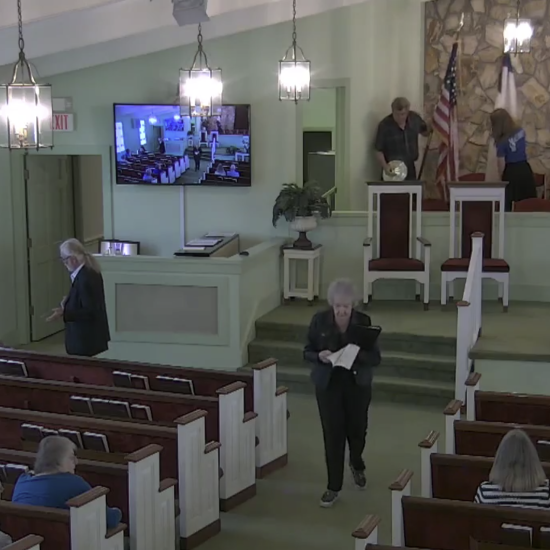
Joy is the act of choosing to respond to external circumstances with inner contentment and satisfaction, because we know that God will use these experiences to accomplish his work in and through our lives. Such definition can make joy sound serious– and sometimes it is. To find joy can become an intentional act amid stressful and unexpected situations.

Terrell Carter
In Luke 1, the proclamation of Jesus’s coming to this world was delivered to multiple people who did not have many reasons to have joy by worldly standards. Elizabeth was an old childless woman whose husband, Zechariah, had lost his voice for not believing an angel who said they would conceive a child despite their age. This couple went on to experience joy when the angel’s words were fulfilled.
Elizabeth’s cousin Mary was a young woman who had very few rights or hopes for her life outside her future husband, Joseph. Being pregnant before marriage, especially when the father was not Joseph, could have led to both her figurative and literal banishment from proper society. So when an angel spoke to her and told her that she would be the mother of Jesus, Mary’s life path became vastly different. Despite her circumstances, Mary felt peace when upon realizing the angel’s words were confirmed.
A group of shepherds, who occupied the lowest rungs of society, experienced joy when a chorus of angels told them of their Savior’s birth. A group of pagan wise men from another nation experienced joy when they found the baby Jesus after His birth.
Another old man named Simeon and an old woman named Anna both camped out at the Temple waiting to see if God would fulfill His promises to their people. For so many years they had experienced frustration from God’s apparent silence towards their prayers for salvation of their nation. They both experienced unexpected joy in seeing the baby Jesus in the Temple.

(Mohamed Nohassi/Unsplash)
We can all have joy because God’s message of redemption and restoration was entrusted to people who did not fit the typical description of joyful people. Because they were able to experience true joy in difficult circumstances, we too, have the same hope for our lives.
You may be wondering why, in the spring season of Easter, this column is covering a passage that is usually thought about around Christmas. The baby that brought hope to hopeless people at his birth eventually grew to become the man that gave all of us hope for restoration with God through his life, death (an act that seemed hopeless), and resurrection.
It is important to keep God’s long term plan in mind when it may appear that we do not have much to hope. God can use what seem like joyless and hopeless circumstances to bring blessings to the world through our lives.
Joy is ultimately found in God’s promises that were fulfilled in the coming of a baby, who grew to be a man, and decades later saved humankind through His selfless act. Because of God’s faithfulness, we can have joy no matter what life may look like.
Terrell Carter is executive director of Rise Community Development, and pastor of Webster Groves Baptist Church in Webster Groves, Missouri. He is also the author of the new book, Taking Apart Bootstrap Theology.






